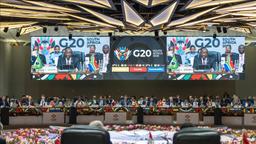
Zoran İvanov
Center DirectorBalkan Studies Center
Related Publication Files

Evaluation Note/ Zoran İvanov
The Western Balkans has once again become a hot topic after the signing of an economic normalization agreement between Serbia and Kosovo on September 4, 2020, in Washington DC. Imposed by the Trump administration, many questions arose from this agreement since it mentions Israel, Hezbollah, energy diversification, and communications technology limitations; topics which do not have any direct impact on the Western Balkans. First and foremost, why was the US pushing to get this deal done so rapidly and in such unusual form? Neither Serbia nor Kosovo possesses global power to influence these geopolitical activities. Nevertheless, signing an economic normalization agreement without the preconditions of fostering inclusive diplomatic and political relations is irrational and bizarre. The event itself, where two separate agreements were signed with only one signature per country excluding the US as mediator, undermines the purpose of the agreement and its effectiveness. On the surface, it appears that the agreement serves US global interests rather than solving one of the numerous everlasting issues of the Western Balkans.
You may read evaluation note from here.




